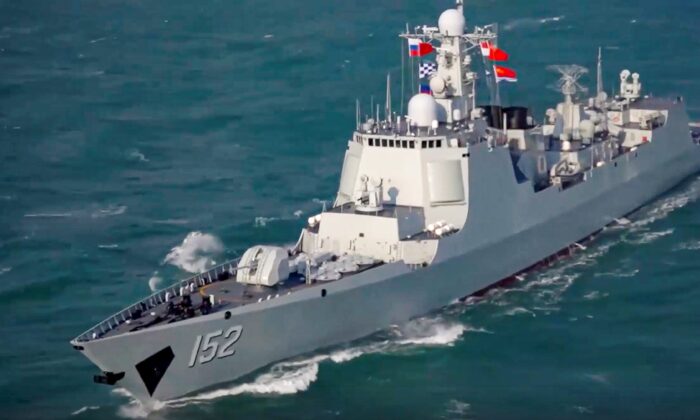NATO Secretary General Jens Stoltenberg recently called on Beijing to halt its support for Russia.
Chinese and Russian naval and air forces are set to conduct additional joint exercises this month, as confirmed by China’s defense ministry. This strengthens the bond between the two countries, which some experts believe is rooted in their common adversary, the United States.
The joint maneuvers will occur in the airspace and waters surrounding the Sea of Japan and the Sea of Okhotsk, according to a September 9 statement from the ministry. However, specific details were not provided.
The upcoming operation, part of an annual plan, aims to enhance the strategic coordination between the Chinese and Russian military forces and improve their joint response capabilities to security threats.
Military collaboration between the two nations has escalated in recent years. In July, they conducted live-fire exercises in the South China Sea.
The Chinese defense ministry announced on Monday that Beijing would participate in its fifth maritime cruise with Russian naval forces in the Pacific and also engage in the Russian military’s “Ocean-2024” drill, without disclosing further information.
Prior to this announcement, NATO Secretary General Jens Stoltenberg had urged China to stop backing Russia.
Stoltenberg stated at a briefing on September 6 in Oslo, “China has become a decisive enabler of Russia’s war against Ukraine.” He highlighted that China plays a crucial role in the production of many weapons used by Russia.
Despite criticism, the Chinese Communist Party (CCP) has rejected the label of being an “enabler” and positioned itself as a neutral party throughout the conflict, which began on February 24, 2022. However, prior to the war, CCP leader Xi Jinping and Russian President Vladimir Putin declared a “no-limits” partnership between their nations during a meeting in Beijing amid the Winter Olympics.
While the CCP pledged not to supply weapons to Russia, the United States and NATO allies have accused Beijing of providing civilian and military materials, like machine tools and chips, to help rebuild Moscow’s defense sector.
China’s economic support for Russia includes purchasing oil and other goods. Bilateral trade between the two countries reached a record high of $240.1 billion last year, representing a 25% increase from the previous year.
China’s foreign ministry revealed that its top diplomat, Wang Yi, will visit Russia’s St. Petersburg this week to attend a BRICS security meeting.
China’s backing of Russia has strained its relations with the United States and the European Union, its primary trade partners. Despite this, many analysts doubt that the CCP will cease its support for Russia as it stands to gain from the ongoing conflict.
According to Eugene Rumer, a former U.S. intelligence officer and director of the Russia and Eurasia Program at Carnegie, the alliance between China and Russia is based on shared authoritarian politics and adversarial relations with the United States.



